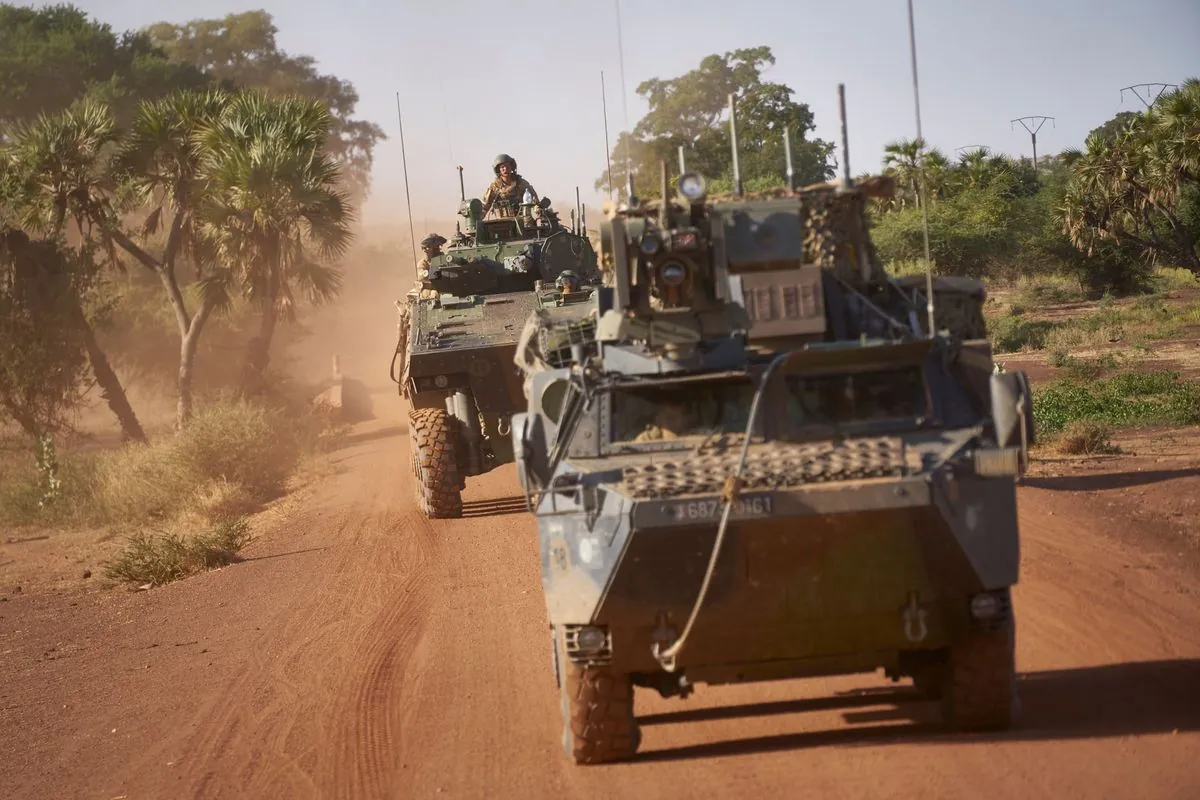On August 24, 2024, Burkina Faso experienced one of its deadliest attacks in recent history when Islamist militants targeted the town of Barsalogho. This tragic event has sparked widespread criticism of the ruling junta's response, or lack thereof, exacerbating concerns about the country's deteriorating security situation.
The attack occurred as residents were digging defensive trenches under military orders. While the exact death toll remains unconfirmed, a group representing victims' families claims at least 400 lives were lost. This incident marks a grim milestone in Burkina Faso's ongoing struggle against extremist violence, which began spreading from neighboring Mali in 2015.
The military authorities, who seized power in 2022, have been notably reticent about the attack. Their limited statement on state television on August 25 acknowledged civilian and military casualties but provided no specific figures. This silence has drawn sharp rebuke from various quarters, including religious leaders and victims' relatives.
Father Jean Emmanuel Konvolbo, a prominent Catholic priest, condemned the junta's inaction, stating, "To persist in silence and inaction, is to contribute to the extinction of humanity in the heart of every human being." His words reflect the growing frustration among Burkina Faso's population, which has endured years of insecurity and political instability.
The Justice Collective for Barsalogho (CJB), an anonymous group representing victims' families, has accused the authorities of suppressing information about the tragedy. They allege attempts to silence those speaking out, including the reported disappearance of an activist in Kaya and an attempted kidnapping of a volunteer fighter in Barsalogho.
Burkina Faso, a country of approximately 21 million people as of 2024, has faced numerous challenges since gaining independence from France in 1960. Despite its rich gold deposits, making it Africa's fourth-largest gold producer, the nation ranks among the world's poorest, placing 182nd out of 189 countries in the UN's Human Development Index.
The country's recent history has been marked by political upheaval, with two coups in 2022 alone. The current junta leader, Ibrahim Traore, came to power in September 2022, ousting his predecessor who had himself toppled the last elected president earlier that year. Both coups were fueled by frustrations over the government's failure to combat the growing Islamist insurgency.
Under Traore's leadership, Burkina Faso has severed ties with Western allies, turning instead to Russia for security support. However, violence has escalated significantly, leading to increased criticism and the potential for further dissent among both military and civilian populations.
"Even with Traore's coup-proofing measures, there are only so many embarrassing mass casualty events like this one that his regime can withstand. If violence continues to spiral, there will be a breaking point. At some point the army and the population are bound to seek leadership change again."
The Barsalogho attack and its aftermath highlight the complex challenges facing Burkina Faso. With a young population (median age of 17.9 years) and a low literacy rate of approximately 41%, the country struggles to address both security and development issues. As part of the G5 Sahel, a regional organization focused on security and development, Burkina Faso continues to seek solutions to its ongoing crises.
As the nation grapples with this latest tragedy, the international community watches closely. Pope Francis expressed deep sorrow for the "horrific acts" over the weekend, drawing global attention to the plight of Burkina Faso's people. The coming weeks and months will be crucial in determining whether the current leadership can effectively address the security situation or if further political upheaval is on the horizon.
